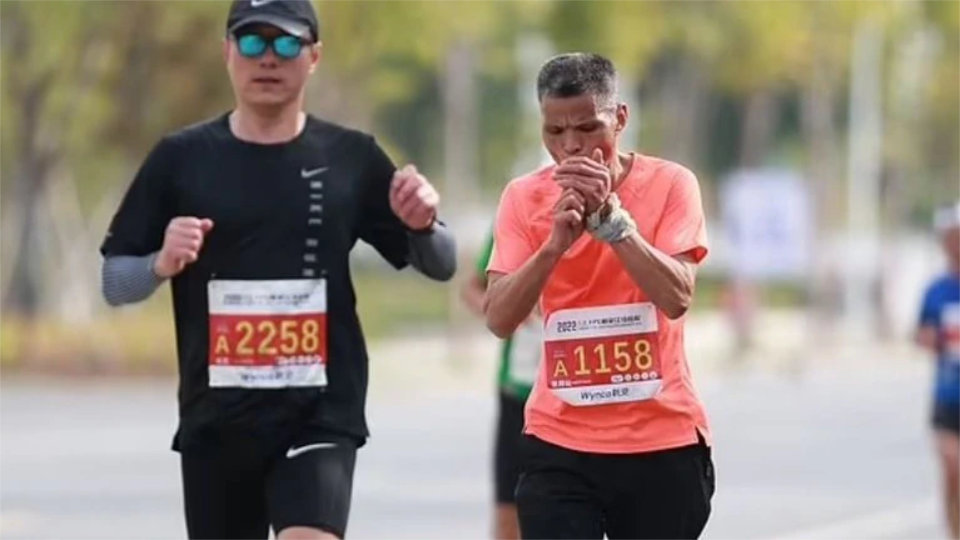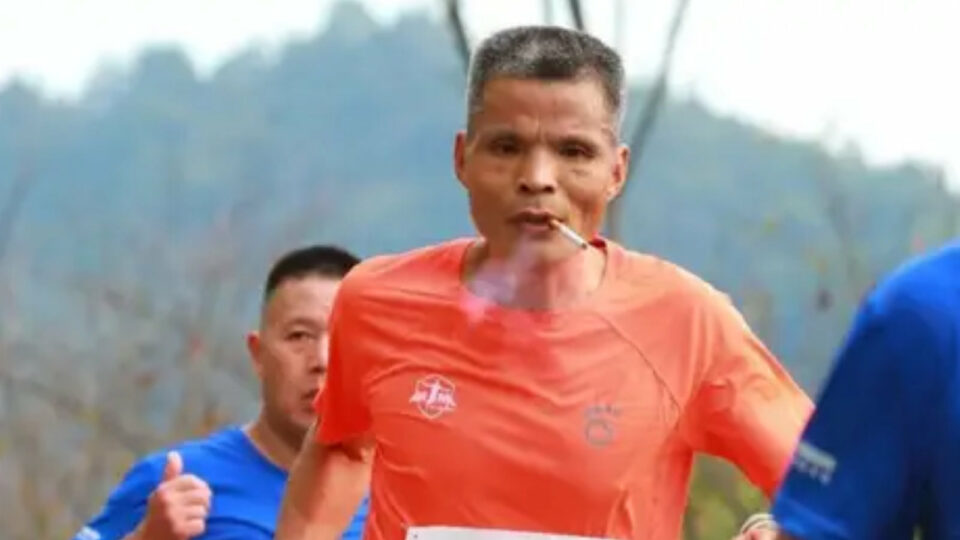In the world of marathon running, where discipline and health are paramount, an unusual story recently emerged. A Chinese marathon runner was disqualified for chain-smoking throughout the race. While this incident may seem just a quirky footnote in sports, it offers surprising insights into the unconventional and the human spirit’s resilience.
Table of Contents
The Chain-Smoking Marathon Incident:
The story of “Uncle Chen,” a runner who gained notoriety for his unusual practice of smoking during a marathon, highlights a stark juxtaposition between athletic endeavor and habits detrimental to health.
Despite the clear conflict between smoking and peak athletic performance, Uncle Chen’s determination to finish the race while indulging in smoking captures a defiance of conventional athletic norms.
A man in his 50s, identified in media reports as Uncle Chen, has captured attention by reportedly chain-smoking through the entirety of a marathon in China, astonishingly completing the event in a time of three hours and 33 minutes.
This unusual feat occurred during the C&D Xiamen Marathon on 7 January 2024, leading to significant consequences for Chen. In response to his actions, the organising committee of the Xiamen Marathon imposed a two-year ban on him from participating in future races they organise.
Uncle Chen is also subject to additional sanctions as his case is referred to the Chinese Athletics Association for further action, as indicated in a notice from 12 January by the marathon’s competition department.
As a result, any official time or ranking for Uncle Chen was annulled, although sources reported his finish time as three hours and 33 minutes.
Notably, this was not the first instance of Uncle Chen smoking while running a marathon. Previous reports highlighted his participation in the Xin’anjiang Marathon in Jiande, Zhejiang province, in November 2022, where he also smoked.
Completing that race in three hours and 28 minutes, Chen finished 574th out of over 1,500 participants. His peculiar habit of smoking while running has been covered by various media outlets drawing widespread attention to his defiance of traditional expectations for marathon runners.
The Runner’s Mindset:
Uncle Chen’s story prompts us to examine the psychology of runners. Often, marathon running is as much a mental challenge as a physical one. It raises questions about the boundaries of mental toughness and how different individuals find unique ways to cope with the grueling demands of long-distance running.

Health and Performance:
This incident also opens up a dialogue about health and endurance sports. Clearly, smoking is detrimental to health and usually considered incompatible with athletic performance. Yet, this scenario shows that human capabilities and limitations are not always clear-cut and predictable.
The Diversity of the Running Community:
Uncle Chen’s story is a testament to the diverse backgrounds and habits of runners worldwide. It highlights that the running community is inclusive, comprising individuals from all walks of life, each with their unique approach to the sport.
The website for the Xiamen Marathon outlined a list of behaviors considered punishable due to their uncivil nature. These include actions such as open defecation, smoking, littering, and damaging flora, which could negatively impact fellow participants.
Is Smoking Allowed During Marathon Races?
Many other cities organisers in China are also taking measures to address smoking and other forms of misconduct during marathon events. While Hangzhou and Guangzhou have introduced regulations to discourage uncivilized conduct, they have not explicitly prohibited smoking.
In Singapore, race organisers generally adhere to the local smoking regulations set forth by the National Environment Agency (NEA), rather than specifying their own distinct policies regarding smoking during events.
According to the NEA, Singapore has strict smoking prohibitions in various public places to protect non-smokers from second-hand smoke and to ensure a clean and healthy environment for all. These regulations include prohibitions in indoor public places, outdoor public facilities, educational institutions, transport nodes, sports and recreational facilities, and specifically designated areas like parks, gardens, and beaches managed by the National Parks Board.
Smoking is allowed only in designated smoking areas, which are clearly marked in certain locations.
Given this extensive framework of smoking prohibitions, it is reasonable to infer that most marathon events in Singapore, including those in public parks or along park connectors that would fall under the jurisdictions mentioned, would inherently discourage smoking by participants due to existing national legislation.
The emphasis is on creating a smoke-free environment in public spaces, particularly where groups gather for recreational activities, which would encompass marathon events.
Organisers likely expect participants to comply with these broader smoking regulations, ensuring the health and safety of all attendees and aligning with Singapore’s goals for public health and cleanliness.
Extraordinary Way of Running
While we certainly don’t advocate smoking, especially in conjunction with sports, there’s a lesson here about the unpredictability of human nature and the extraordinary ways in which people challenge themselves.
Uncle Chen’s story is a reminder that sometimes, the most unconventional stories in sports can offer the most profound reflections on human endurance and spirit.
Featured Photo Credit: Weibo





